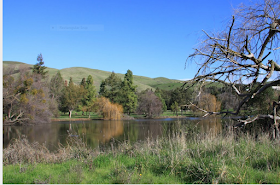First, I've just read Oliver Dickinson's new attempt to synthesise the Greek Bronze Age--Iron Age transition. Powerfully scholarly, Dickinson first sets the terms: whatever else we know or do not know about the "catastrophe" which ended the Late Bronze Age, there is an irreducible core of facts to consider. At the end of the Palatial Period, "Mycenaean Greek" civilisation was building monumental structures. At the dawning of the Classical Period, "Ancient Greeks" were again building monumental structures. Their nature had changed significantly over the course of 400 years, from spectacular tombs and not-quite-so-spectacular palace sites to temples, but from some kind of functional point of view, their absence in the intervening almost half-millennium constitutes definitive proof that some kind of social caesura had taken place. Call it a catastrophe, or a decomplexification, or a collapse of the Late Bronze Age state, but something.
However, Dickinson feels himself compelled to adopt the version of the thesis in which decomplexification leads to a significant local population decline. He wants to argue that whatever the problems so far invoked with using area surveys to measure populations, we are at the point where we can accept them as evidence. I am not convinced, so, all digressions aside, this post is mostly a disagreement with that. (Spoiler: I continue to be persuaded by the idea that they all went away to live in the hills. Still have to motivate the argument, though.)
Second, since this is a blog about grass and technology, can a claim that technological exogeneity lies in back of the Late Bronze Age collapse be sustained? That is, for we moderns who worry that robots are about to take our jobs, is there a parallel example in iron axes, presumably taking the jobs, and perhaps lives, of the bronze merchants (bankers-in-bronze?) Or is technology endogenous, with Late Bronze Age society giving way to a new lifestyle which makes iron possible.
Or, even more radically, is technology an epiphenomena of economic growth, in which case the Late Bronze Age-Iron Age transition is an episode of economic-growth-with-political-catastrophe-characteristics? (That would be a contrarian interpretation, indeed.)
Third, a little buried compared with the force of the anecdote: fourteen grand, in case you were wondering, is, I have just learned, what you pay in student loan-funded tuition to go to truck driver school in Vancouver right now. All scholarly caution about overly dramatic intepretations of the end of the Late Bronze Age aside, I want there to have been an episode in which the peasants burned down the wanax's palace and went off to live in Arcadia. "By the time we're done, Linear B will be spoken only in Hell."
There is evidence burning a hole in my pocket, and since this is a blog, and not a monograph, I can spend it. Right now. That evidence is locality. If you read about the Greek War of Independence, you are inspired by events in Bessarabia to land in called Messalonghi. You go on to see a war proclaimed at Arepoli and Kalamata by the men of Monemvasia and "unconquered Mani" and bold klephts of Arcadia ("On horse they go to church/on horse they kiss the icons/on horse they receive communion/From the priest's hand"), who advance on Tripoli, Nafplio and Ypati.and fight at Navarino and Petra.
Even granted that we don't know as much as we think we do about the geography of Classical Greece, a striking number of turn-of-modernity Greeks seem to have been living in the wrong place. The hellenophiles of the time seem to have taken it that their contemporary Greeks were a bit degenerate, but that it was something that could be fixed. Greece's new Bavarian monarch chose Athens as his capital in 1834, and promptly announced the restoration of Sparta --the episode out of which this story springs. The people of Laconia of circa 1834 didn't think that Sparta needed to be restored, because although they did not call their town "Sparta," they were pretty clear that Mystras was the new town to Sparta's old. The ancient Spartans had built a city in a pretty dumb place; the new location was better.
They lost that argument, as the Peloponnese has been losing arguments with Athens ever since. The question here, if it is not too anachronistic, is whether or not the Greeks of 1830 had a point. Always tiptoeing around accusations of anachronism, we are already in the habit of interpreting the archaeological record of the Greek countryside at the end of the Late Bronze Age in the light of other eras. Why not start at Mystras?
 |
| "Botzaris Suprises the Turkish Camp and Falls Mortally Wounded," Eugene Delacroix |





